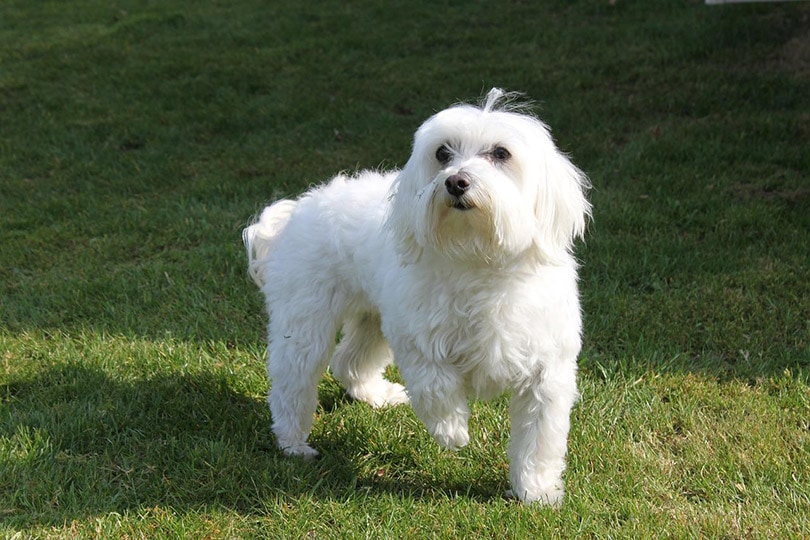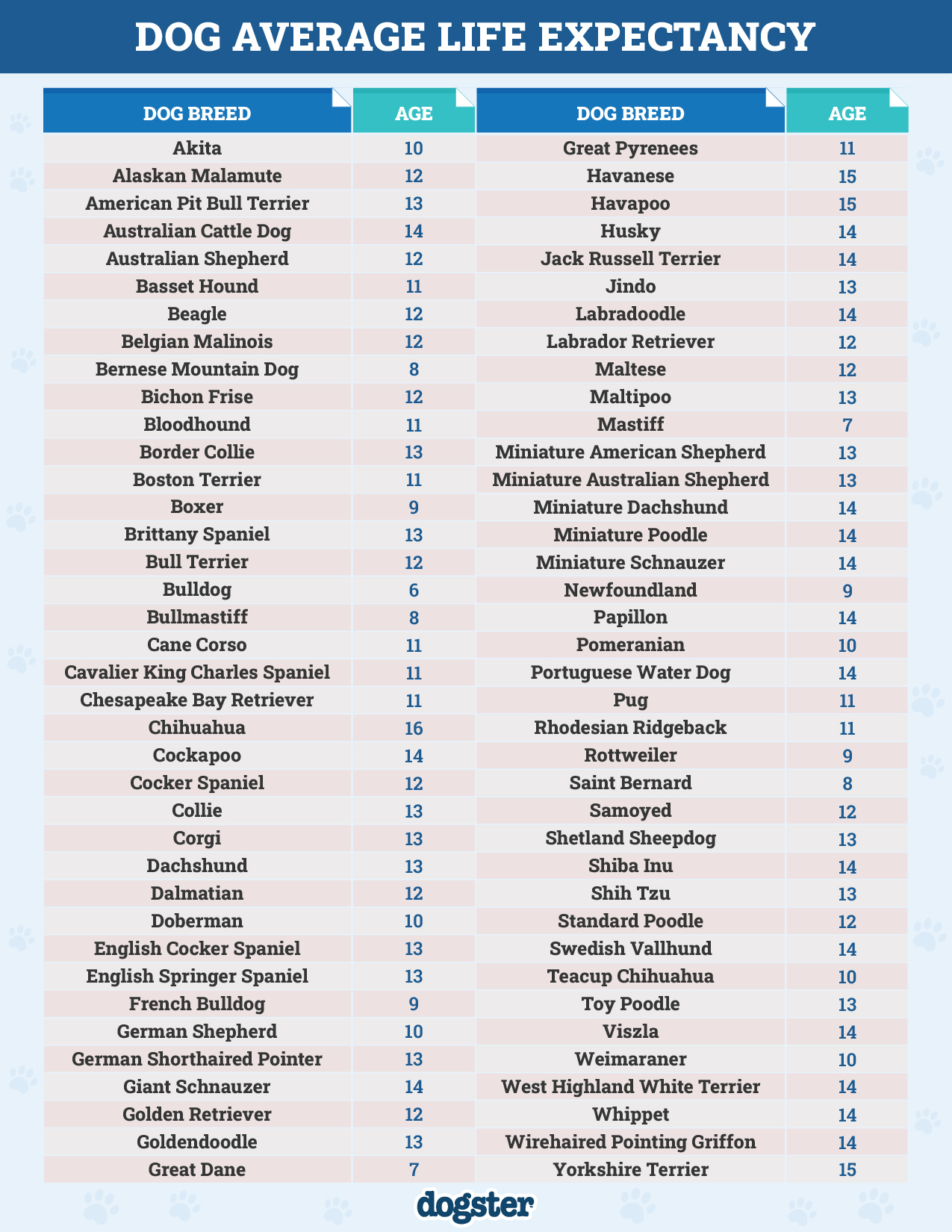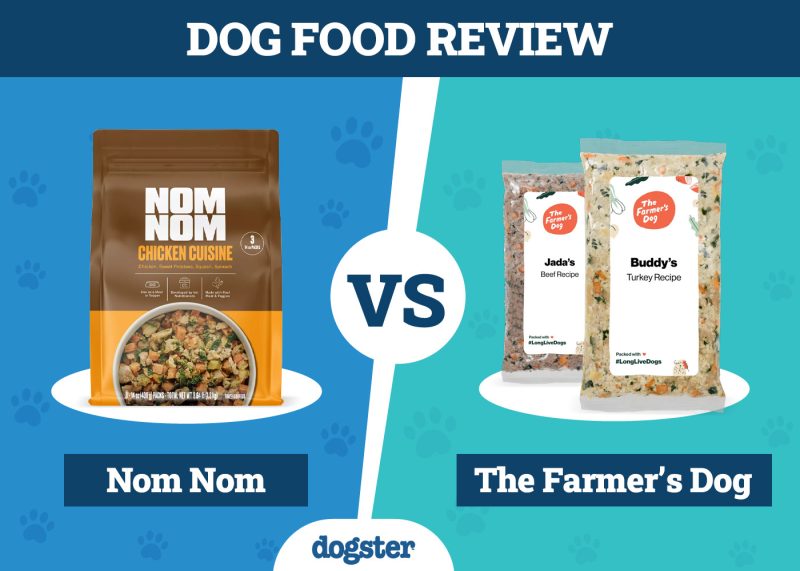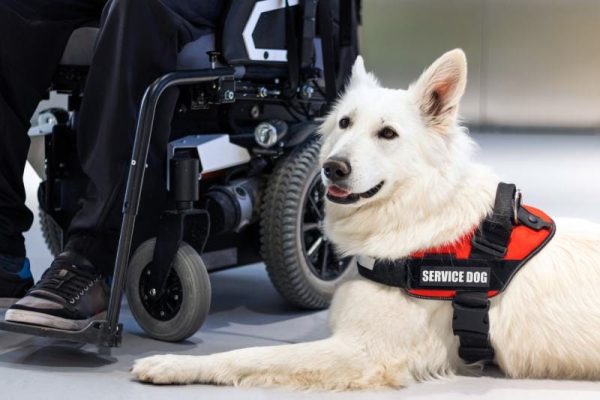In this article
View 3 More +The Maltese dog is admired for its luxurious white coat and playful personality. It makes for a great family pet, but how long do they live?
Well, some have reached their 17th birthday, but their average lifespan is much lower. The average lifespan of a Maltese is 12–15 years. However, you can expect them to outlive popular large breeds such as the German Shepherd, Mastiff, and Rottweiler.
Read on to learn more about the lifespan of the Maltese dog and what you can do to prolong the life of your pet.

What’s the Average Lifespan of a Maltese?
Being a toy breed, a Maltese dog lives longer than the average dog. Most dogs are expected to live for 10–12 years. But a Maltese can live for 12 to 15 years, provided they do not face any serious health issues.
On average, Maltese dogs live for 13.5 years. Females live slightly longer (one year longer, on average) than their male counterparts.


Why Do Some Maltese Dogs Live Longer Than Others?
Although Maltese dogs live for 12 to 15 years, that is not always the case. There are instances where some have lived to be 15, 16, or 17 years old. Conversely, not all Maltese dogs are fortunate to live out their expected lifespan.
Many factors can contribute to lengthening or shortening the lifespan of a Maltese. We explore some of them below.
1. Nutrition
Nutritional deficiency can lead to health issues that can negatively impact the lifespan of your dog. On the other hand, overfeeding can lead to obesity, contributing to other life-threatening problems such as kidney disease and pancreatitis.
Therefore, feeding your Maltese dog a balanced and nutritious diet is essential.
Of course, choosing the best diet for your pup will depend on its individual needs. But generally, you should always select a diet with high-quality nutrients and avoid low-quality food with chemical additives that can cause fatal health issues like cancer.
Maltese puppies are highly susceptible to hypoglycemia because of their tiny bodies. Therefore, you must feed them at least 3 to 4 meals a day until they reach 4 months of age. You can transition to 2 to 3 times daily when their bodies are developed enough to regulate their glucose levels.
2. Environment and Conditions
Being a toy breed, Maltese dogs are highly prone to death due to trauma. Their small size and weight increase their likelihood of injury compared to larger dogs. Therefore, ensuring favorable conditions in their surrounding environment is essential to guarantee a long lifespan.
Puppies are the most vulnerable. So, watch where you step to avoid tripping over them. Crowded places are also dangerous since the pup can get in a stranger’s way and accidentally get tripped over.
Adult Maltese dogs are not out of danger either, so never let yours go outside without supervision. If you must take them with you in crowded places, ensure they are always on a leash to prevent the likelihood of accidents.
Maltese dogs are affectionate and can do well in large families. But they do better in households with older children who can carefully handle them. Young or boisterous kids are often careless and can fatally injure the dog during play.

3. Enclosure Size/Living Quarters/Housing
Unlike other large energetic breeds, a Maltese doesn’t require a large house or yard to run, exercise, or play. However, the space in your home should be large enough to allow for play without endangering the pup’s life.
Remember, a Maltese dog’s tiny body makes them vulnerable to trauma and injury during play. So, there should be plenty of space for all participants to maneuver safely.
4. Size
Generally, smaller breeds tend to live longer than larger ones. It’s no wonder that a Maltese can live as long as 15 years when most dogs don’t live past their 12th year.
Size also determines a dog’s lifespan within the Maltese family. Case in point, the Teacup Maltese, which is a smaller version of the breed, is less likely to live out its expected lifespan.
Their compact size makes them more susceptible to health issues than the standard Maltese. Additionally, they are more likely to suffer fatal injuries.

5. Sex
As with most breeds, female Maltese dogs live longer than their male counterparts. On average, the females outlive the males by a year.
According to a study on canine deaths, the female survival advantage is more evident in neutered dogs. The study also revealed that desexing has a more significant impact on a pup’s lifespan than sex.
6. Genes
Genes can play a significant role in determining the lifespan of a Maltese dog. The breed is susceptible to various hereditary diseases, which can be life-threatening if not detected and corrected at an early age.
For instance, Patent Ductus Arteriosus (PDA) is an inherited condition that can lead to heart failure and death if not corrected at the puppy stage. Liver shunts can also be hereditary and cause death if they go unnoticed.

7. Breeding History
A dog’s breeding history can determine how long they live. That’s why learning about a Maltese puppy’s family tree before you commit to raising one is essential. A breeder should be able to provide all the relevant information about the health of the pup’s parents and grandparents. Find out how long they lived and, if possible, the cause of their death.
Some fatal conditions can be passed down from parents to their offspring. So, if a relative died from a hereditary disease, there is a likelihood your pup could be genetically predisposed.
Don’t trust breeders who fail to give satisfactory answers. It is a sign they don’t take their dog’s health seriously or screen them for diseases.
8. Healthcare
Maltese dogs are generally healthy, and most will live out their expected lifespan. However, hereditary conditions can cut short their life. These include Patent Ductus Arteriosus (PDA) and Liver Shunts.
Patent Ductus Arteriosus can be corrected through surgery if detected early. So, all puppies should be screened for such abnormalities before they lead to heart failure. Likewise, if detected early, liver shunts can be managed with proper diet and medication. But sometimes surgery is also needed.
Routine checkups are necessary for all dogs, whether they seem healthy or not. So, every Maltese owner should consider visiting the vet at least once a year.


The 4 Life Stages of a Maltese
Now that you know how long a Maltese dog can live, let’s explore the different stages of their lifecycle.
The four stages include puppy, adolescent, adult, and senior. Learning about them can help you understand your Maltese dog’s behavior better.

Puppy
Maltese puppies develop their sense of sight and smell from 2 to 3 weeks of age. They also start moving about at this stage.
The puppies are usually weaned after 8 weeks of age. They should spend time with their mother before that age since they rely on them for sustenance and warmth.
Adolescent
Adolescent Maltese dogs are 5 to 8 months old. At this stage, the pup’s hormones start to kick in. Here, you can glimpse their affectionate, protective, and intelligent personality as it develops.
Adult
Maltese dogs reach their full size at adulthood, at which stage they become easier to manage. That is usually 6 to 8 months for most puppies. However, it can take 12 to 15 months for some to reach adult size.
Maltese dogs are energetic at this age. They enjoy playtime and going out for walks.
Senior
When a Maltese dog turns 8 to 10 years old, they are considered seniors. You can tell your dog has reached this stage when they start slowing down. Other signs include decreased vision and less enthusiasm to play.
Maltese dogs are more vulnerable to diseases and infections at this stage. So, don’t forget to visit the vet for checkups regularly.

How to Tell Your Maltese’s Age
You can guess your Maltese dog’s age by observing their teeth. The milk teeth start developing at 3 to 8 weeks old and begin falling out at 4 to 5 months of age.
It can be hard to tell the age by looking at the teeth after adulthood. So, studying their behavior can help. For instance, Maltese dogs tend to be energetic when younger and begin slowing down once they reach the senior stage.
Consulting a veterinarian is the most reliable way to tell your dog’s age. They will conduct relevant tests and evaluations to make a more accurate prediction.


Conclusion
Maltese dogs live for 12 to 15 years. But they can live longer or shorter depending on nutrition, breeding, healthcare, and genes. With proper care and maintenance, some can live up to 17 years of age.
Being a toy breed, a Maltese dog will outlive an average dog. However, hereditary health conditions can reduce their lifespan.
Therefore, screening your pup at an early age is imperative. Visiting the vet regularly to nip potential health problems is also advisable.
Featured Image Credit: Hans Benn, Pixabay























